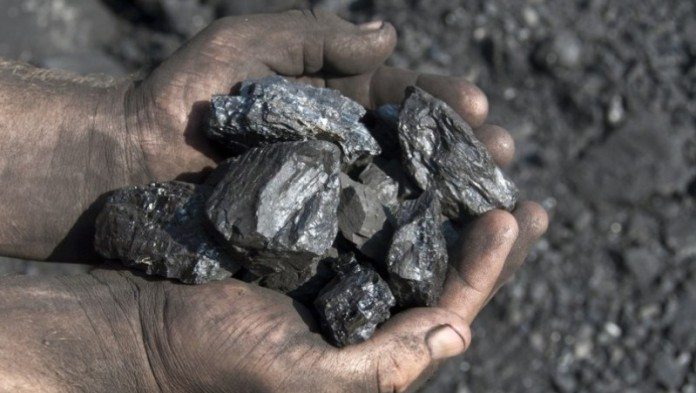
IN the dialogue on energy sustainability, coal often finds itself at the centre of a contentious debate. As economies navigate the intricacies of climate change, economic development, and energy security, a refined understanding of coal’s place within the global energy portfolio is imperative. This discourse calls for a departure from polarised views, urging global leaders to embrace a more nuanced perspective that recognises coal’s potential in a balanced energy transition.
The reality of the global energy landscape is one of diversity and complexity. This dependency is not merely a matter of choice but a reflection of current capabilities and resources. Therefore, any discourse on coal must consider these socio-economic dimensions, advocating for strategies that respect and address the needs of diverse communities.
Coal has long been a cornerstone of industrial progress, fuelling economies and supporting livelihoods across the globe. Its abundant reserves and reliability as an energy source have made it a bedrock of energy policies, particularly in emerging economies where access to affordable energy is a critical driver of development and poverty alleviation.
In South Africa, coal is not just a source of energy but also a significant employer, sustaining mining communities and contributing to the national GDP. The country’s energy sector is heavily reliant on coal, with it underpinning the electricity supply, which is critical for both the populace and the industrial sector. Similarly, India’s rapid industrialisation has been powered by coal, which remains its primary energy source due to its affordability and abundance. This has propelled economic growth and played a crucial role in advancing the country’s developmental agenda.
However, global economies face the environmental quandary of coal dependence, whilst the environmental challenges associated with coal—most notably its contribution to greenhouse gas emissions—have rightly led to calls for a more sustainable approach to our energy future.
Reimagining the role of coal in the global energy mix requires forward-thinking policies and international cooperation
The transition to a more sustainable energy mix must be inclusive, considering the diverse needs and capabilities of countries worldwide. A pragmatic approach, where coal complements renewable energy sources, can ensure energy security, economic stability, and environmental protection.
The transition to a low-carbon economy is a journey that requires pragmatism, innovation, and an inclusive perspective that respects the diverse energy needs and capacities of nations worldwide. It is here that the concept of a modernised, sustainable coal ecosystem finds its relevance. This ecosystem is not anchored in the coal practices of the past but is envisioned as an integrated, technologically advanced component of a diversified energy portfolio, where coal’s role is redefined through cleaner, more efficient technologies.
Advocating for a coal ecosystem doesn’t mean ignoring the urgent need for the transition. Instead, it’s about recognising coal’s potential to be part of a multi-faceted solution, with a focus on innovation, technology, and global cooperation to address the world’s energy challenges.
Innovation lies at the heart of transforming the coal sector. Realising that coal continues to be a significant driver of economic development, providing reliable and affordable energy to millions, the coal industry is at the forefront of adopting cleaner coal technologies and investing in carbon capture and storage to mitigate emissions.
Technological advancements, particularly in clean coal technologies like carbon capture, utilisation, and storage (CCUS), offer a pathway to reduce the environmental impact of coal usage significantly. However, the adoption of such technologies is not without its challenges. Issues of scalability, cost, and infrastructure necessitate a collaborative approach, where governments, industry, and academia come together to drive innovation and implementation.
Investing in research and development to improve the efficiency of these technologies is crucial for making them more economically viable and widely adopted.
Integration with renewables
Furthermore, the integration of coal with renewable energy sources presents an opportunity for creating a more resilient and flexible energy system. Hybrid systems that combine coal with solar, wind, or biomass can provide a steady power supply while reducing carbon emissions. Such innovative approaches underscore the potential of coal to contribute to a diversified and sustainable energy portfolio.
The transition from coal must be equitable. A responsible transition framework is essential to ensure that communities dependent on the coal industry are not left behind. This involves creating opportunities for re-skilling, investing in alternative industries, and providing adequate social support systems. Examples from regions that have successfully navigated this transition can serve as blueprints for others.
Reimagining the role of coal in the global energy mix requires forward-thinking policies and international cooperation. Global leaders must craft policies that incentivise clean energy innovations, ensure equitable transitions, and foster international collaboration on research and technology transfer. The complexity of the global energy challenge demands a coordinated response, one that balances environmental imperatives with economic and social realities.
The discourse on coal and its future in our energy mix is at a critical juncture. As we navigate the challenges and opportunities of the 21st century, it is crucial to engage in nuanced and contextual conversations that move beyond binary perspectives. The journey ahead is complex, but coal, with its potential for cleaner utilisation and role in energy security, must be part of a diversified and sustainable energy portfolio. This vision requires a commitment to innovation, equity, and collaboration, challenging leaders to rethink the approach to coal and its place in the energy future.
July Ndlovu is the CEO of Thungela Resources.











